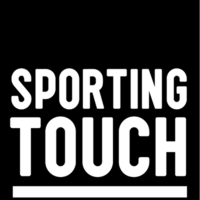What was the first game you refereed?
I was a player for Leicester Tigers academy at the time and we were due to play a welsh side that day.
I was recovering from an injury so I had been coaching in the community at the time. I had recently completed my entry-level referee qualification after meeting Chris White (National Referee Development Manager) who encouraged me to take on the course.
For some reason the referee had cried off the fixture in the morning, I got a phone call asking if I was available & I ended up refereeing that game.
What was the first Premiership game you refereed?
My first game was at The Madejski Stadium in 2018 where London Irish took on Wasps.
It was obviously a special game for me, my biggest memory of that fixture was having to put a world cup winning player in the sin bin.
Did you have a referee that you looked up to when you were younger and why?
I was always admirable of Luke Pearce, he was a young referee and had a style that I enjoyed watching, it’s was unobtrusive and he has a really good way with the players.
What makes a good referee in your opinion?
A person who is resilient and can accept that there will be ‘speed bumps’ on the way will always thrive in the refereeing world. It’s not always going to be a smooth ride so being robust always helps.
The best referees in the world are all different personalities. The one skill they all have in common is the ability to be calm & civil to people. It’s not about being overly officious or looking to be everyone’s friend, it’s about being respected as a referee and this is something they all have in common.
If we can walk away from a game without people talking about us, then we know we have done a good job.
How do you deal with setbacks?
I call them ‘Speedbumps’ because you are not necessarily going backwards. You just need to slow down a bit and you’ve got to capture the mistake or poor choice and learn from it to keep moving forward.
It’s about honesty first, accepting that you made that error or poor choice, this is often easier if you know there no such thing as a ‘perfect game’.
It's important to accept, reflect, learn and move on to your next game, one thing I know for sure is that it won't be your last mistake and every referee will experience these moments. It is true that often we learn more from these games.
Are there certain games that causes you to have more nerves than others?
Yes, of course, naturally I have more nerves when games have bigger crowds, on TV, or are local derbies. The reality, however, is that it's just another game of rugby, with one ball and 15 players on each side and you’re the ref. The rules don’t change, the pitch is still the same size, the things that change are external factors which shouldn’t affect your performance.
What advice would you give to a young referee who is faced with a challenging game?
Have the mindset that the players need you there, without you the game won’t be as enjoyable for anybody. The players want rules and want you to do the best job, they don’t want chaotic games which lack control or any order. Remember you are contributing to that game and every time you blow the whistle, it should be to add value to the quality.
It's always worth remembering no one has come to watch you the referee, therefore there is no pressure for you to make the game exciting, that’s the player's job, you are just blending into the background trying to add value where you can & make sure both teams get a fair crack at winning.
What strategies do you use to deal with pressure?
I have often to remind myself who put me there, the people who appoint you to these games are experts in their own right. These people who make decisions on where you go in your refereeing career are often ex referees themselves or coaches so they know your capability.
The first thing I tell myself when I’m under a lot of pressure is that I’ve been put there by someone who knows I have the ability to do a good job in this particular game and if I didn’t then they wouldn’t have appointed me on this game in the first place, trust the system!
Sometimes I stand inside a stadium before a game and look around into the stands and you’ve got to remember that there is no one in the stands that can do a better job than you. They could be standing where you are but they are not. The reality is that you are the person in that ground that can do the best job at that point in time.
How do you like to relax before and after a game?
My preparation is done days before the match. On a day of a game, I like to keep my mind off of rugby. I don’t have a special routine, I just treat it as a normal day, get up, eat porridge, watch the news, and then as the game gets closer, I start to focus is more on the task. This usually starts when I get in my car to travel to the fixture.
Early in my career, I would think about the game days in advance. I would referee the game about 15 times over in my head thinking of every possible scenario. This meant that by the time the actual game took place, I was exhausted from all the refereeing I had done in my head.
The most important thing is to ‘switch off’. You need to find something else to do leading up to games. This way you will stay fresh and inevitably lead to better performances.





















